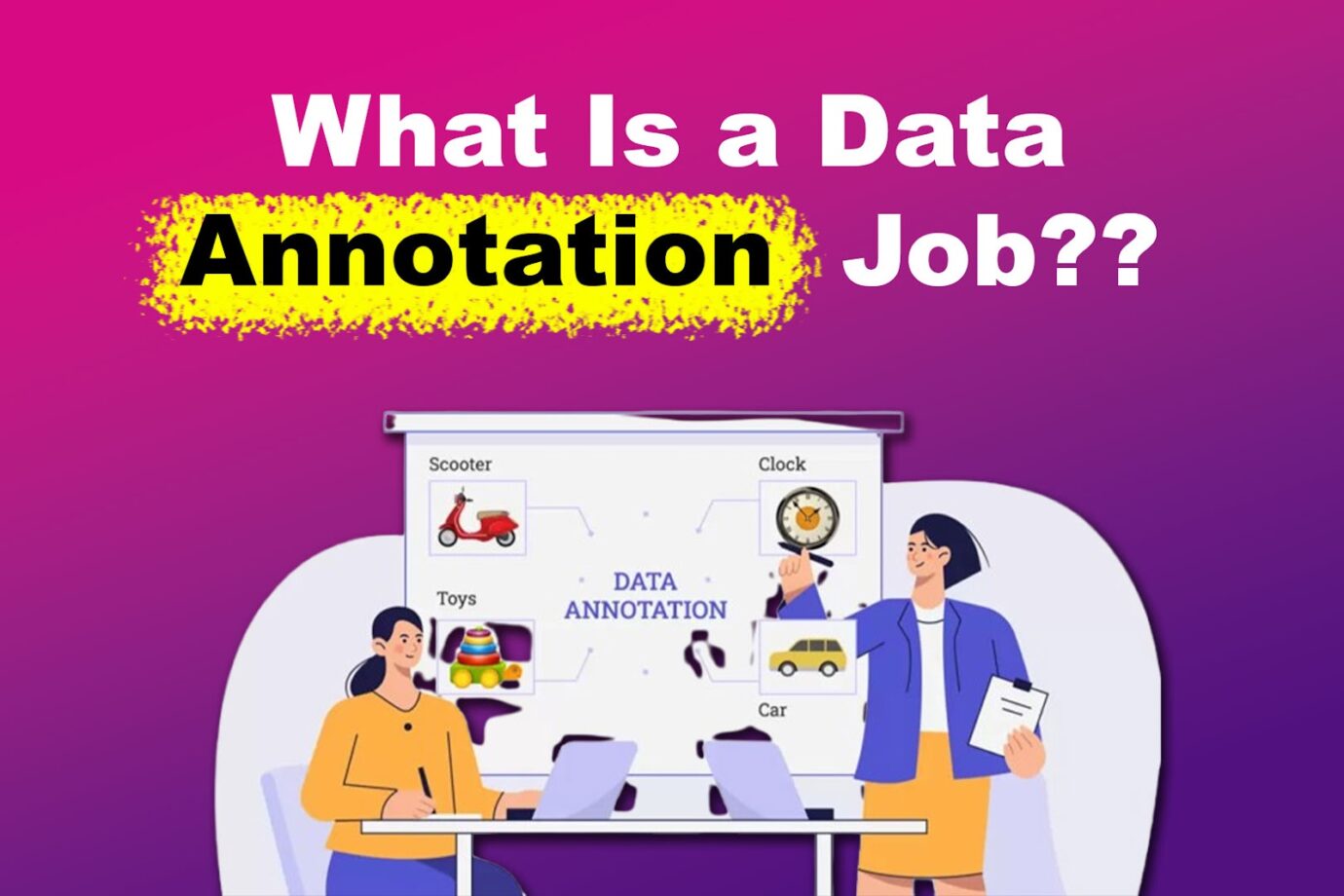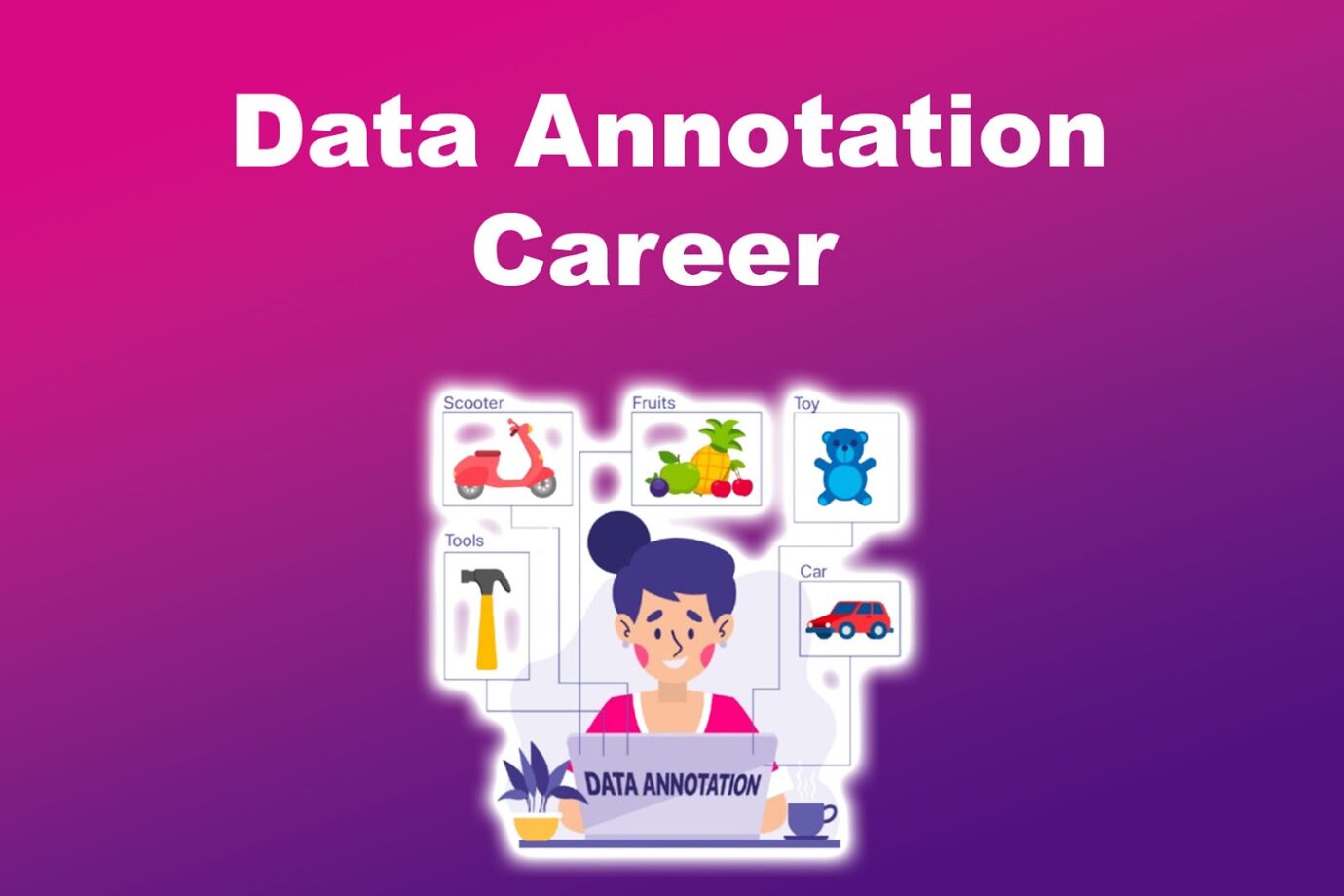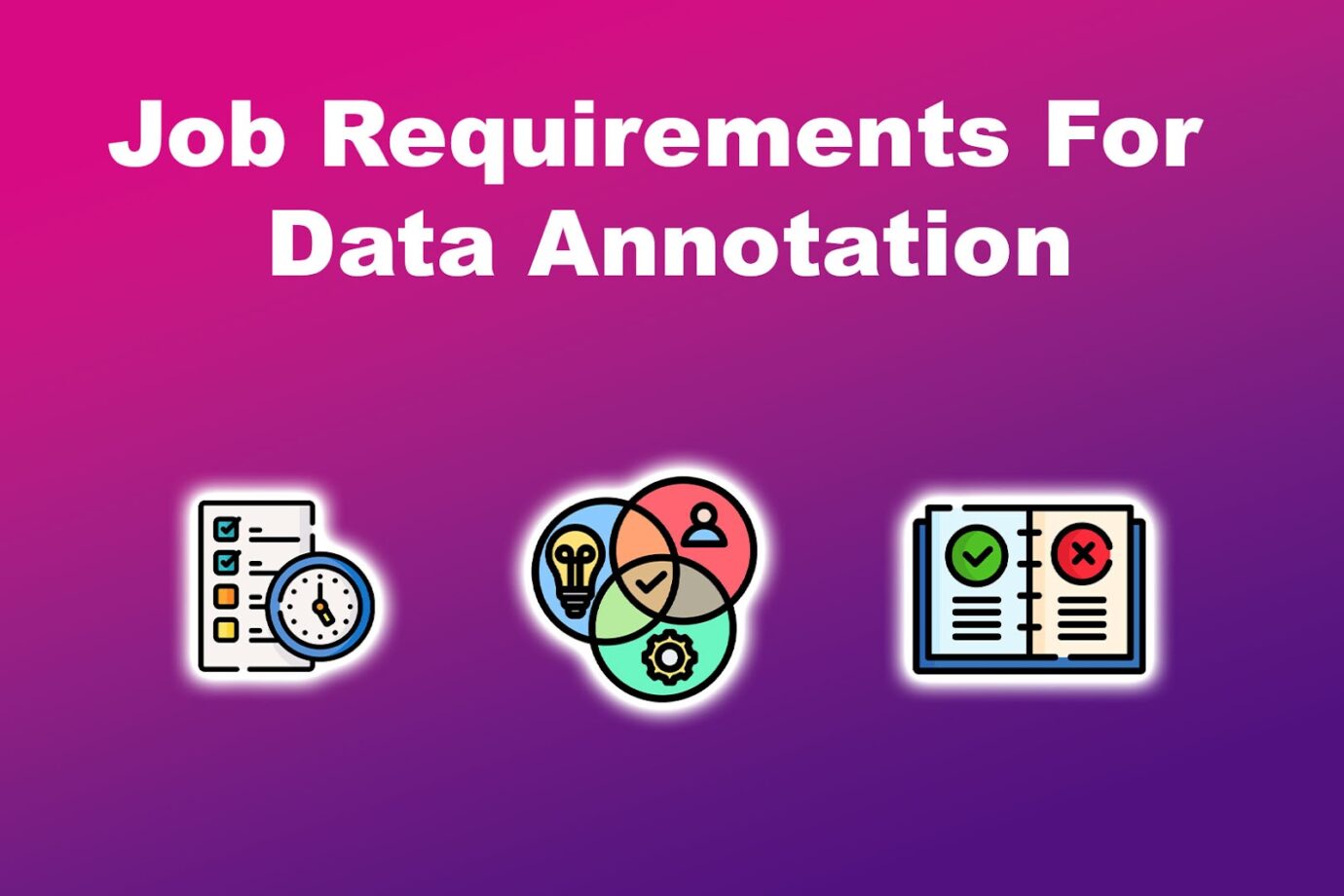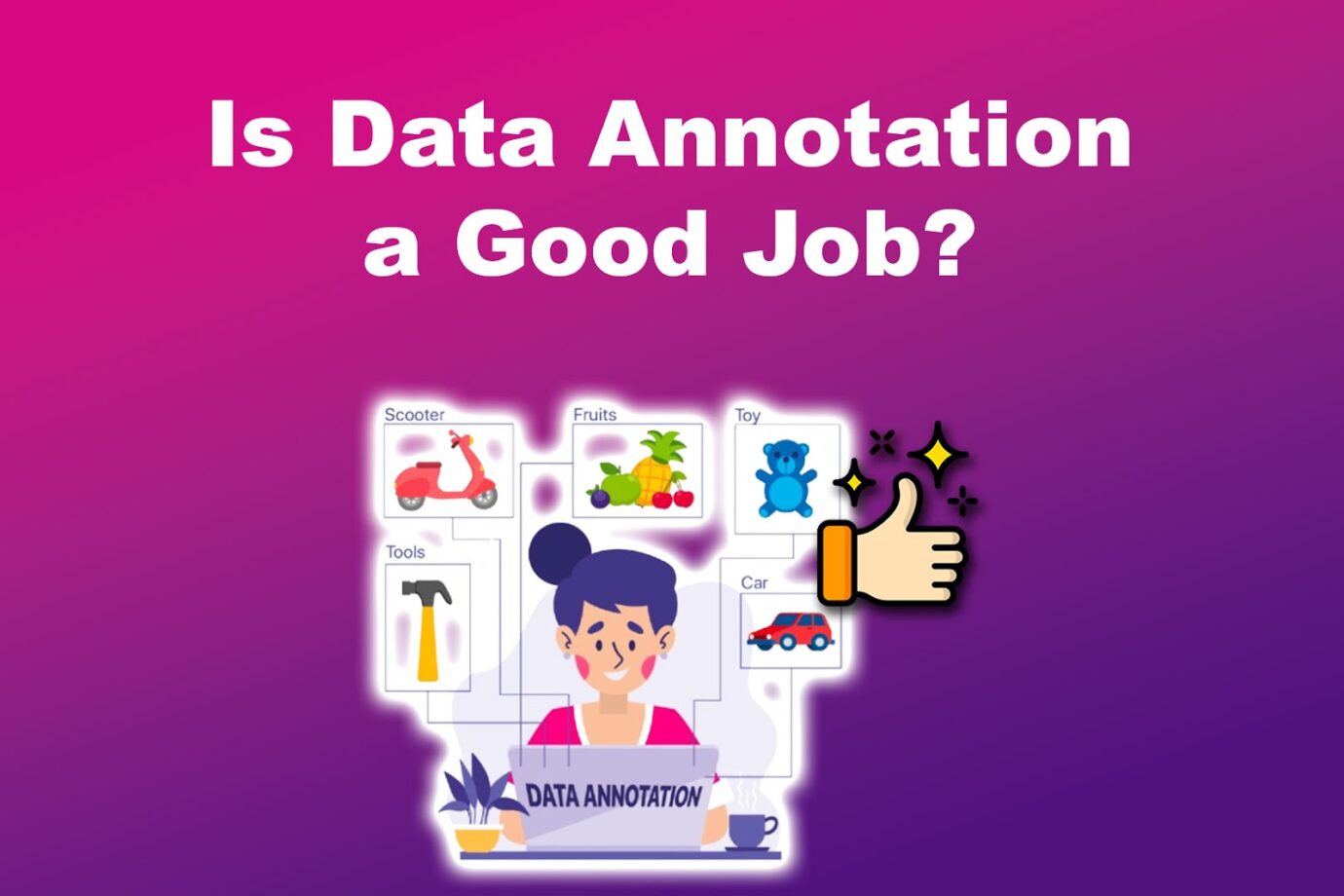Artificial intelligence (AI) is now a common thing for many companies. Businesses often use it to automate repetitive tasks, giving employees more time to spend on complex work that requires their focus.

However, AI can only handle human tasks if fed with data. For this, businesses need data annotators. But what is a data annotation job, and why is it essential for companies utilizing AI?
But before anything else, it’s first vital to understand the importance of data annotation across different industries.
Need examples of data annotation? Find them here.
Why Is Data Annotation Important?
Data annotation is important because it is the foundation of machine learning. It refines artificial intelligence and machine learning (AI/ML) models, allowing it to be context-aware and perform tasks accurately. Without it, AI/ML will perform poorly and fail to deliver reliable information.
Different industries may also benefit from data annotation and machine learning. For instance, customer service and retail sectors can use annotated data to tailor their services to meet customer preferences. This increases customer satisfaction, as the service or product recommendation they receive accurately “targets” them.
Another example is the use of data annotation in the finance sector. Financial companies can train AI/ML models to detect fraud, assess risks, and monitor whether financial documents comply with regulations.
Forbes has an article explaining the importance of data annotation.
What Is a Data Annotation Job?
A data annotation job is the manual process of labeling and tagging data to help AI systems understand it, recognize patterns, and make accurate predictions. This process is crucial, as it teaches machine learning models to function independently.

When you’re annotating a textbook, you do it so that you understand what a term means when you read it. You can think of data annotation as something similar. Raw data is annotated so that it can be understood by artificial intelligence and machine learning (AI/ML).
An example of data annotation is chatbots like ChatGPT. Humans label texts with meaning so they can provide coherent answers to user queries. Without humans feeding AI with descriptive data, it cannot distinguish one piece of information from another.
Data annotation is divided into different types, each focusing on specific areas. Find out more about what data annotation is, and its type and application in this article.
What Does a Data Annotation Specialist Do?
Data annotation specialists are the backbone of a well-performing machine learning model. Without them, these models will not understand the context behind words, images, videos, and audio.
Here are the things data annotation specialists do to help artificial intelligence interpret information:
- Labeling.
Data annotators label text, images, audio, and video to help computer systems understand their context. - Validating.
This is the part where data annotation specialists distinguish data patterns. They check data quality to ensure that the information they feed AI systems doesn’t have errors and inconsistencies.
Validating data is crucial to ensure that information is accurate and is within the AI system’s intended purpose. - Training.
Data annotation specialists train machine learning systems by feeding them the labeled data prepared during the labeling process. Once the training is done, the AI should be able to provide users with comprehensible information.
While the list of things data annotators do seems simple, it’s worth noting that this is a challenging job that requires a high level of focus and meticulousness. A data annotation job requires annotators to follow strict guidelines and understand complex subject matters.
Data annotation is a job that requires precision and keen eyes. So, before hiring data annotators, companies require applicants to undergo a data annotation starter assessment.
What Are the Requirements for Becoming a Data Annotator?

Data annotators handle various forms of data, such as text, audio, and video. Their job is time-consuming, so they must have attention to detail, strong communication skills, and motivation.
Here are the data annotation job requirements:
- Technical Skills.
While you don’t need to be a computer wizard, you must be familiar with basic computer functions, data annotation tools, and programming languages. - Attention to Detail.
There is more to what data annotation does than just labeling. Attention to detail is required to get the job done accurately. You should be keen enough to notice even the smallest differences in data and work without losing focus. - Time Management.
Labeling data for AI/ML models is time-consuming, so data annotators should be able to manage their time and get things done efficiently. - Ability to Follow Guidelines.
Data annotation instructions include the type of data to work on, annotation format, and its criteria. You must understand and follow these things to ensure that your AI/ML model will work seamlessly.
Apart from the abovementioned skills, you must also be open to continuous improvement. Artificial intelligence is always evolving. So, you must keep up with the emerging trends, tools, and data annotation skills.
Want to kickstart your data annotation career? Upwork has listed some data annotation jobs you can apply for.
Is Data Annotation a Good Job?

Yes, data annotation is a good job because you can contribute to the development of artificial intelligence. It also helps improve your analytical skills, making it a good career if you constantly seek to improve your expertise.
According to Glassdoor, data annotators, a data annotator can earn between $38,000 and $61,000 per year. This is another thing that makes data annotation a good career.
However, it’s worth noting that being a data annotation specialist also has some drawbacks. The tasks are repetitive, so they can be monotonous. This job also requires high concentration, making it mentally exhausting.
While many people already know what data annotation is, some are still skeptical about its legitimacy. Time Magazine has an article explaining everything you must know about data annotation, from its legitimacy to the firsthand experiences of people who worked in this industry.
It Takes Skills to Become a Data Annotator
Data annotation undoubtedly has a future, especially now that different industries utilize AI/ML models to improve customer service. So, if you want to become a data annotation specialist, it’s worth noting that it can be a fulfilling job.
So, start familiarizing yourself with data annotation tools and techniques and the skills it requires!